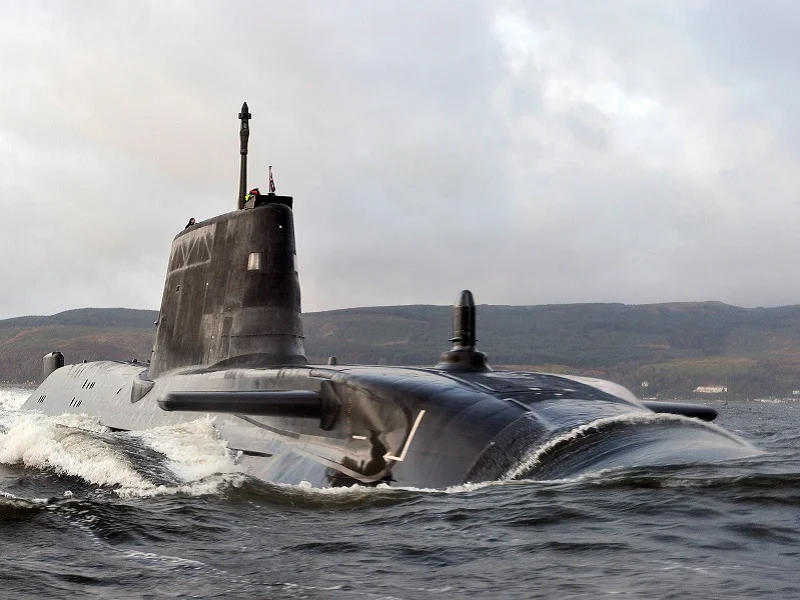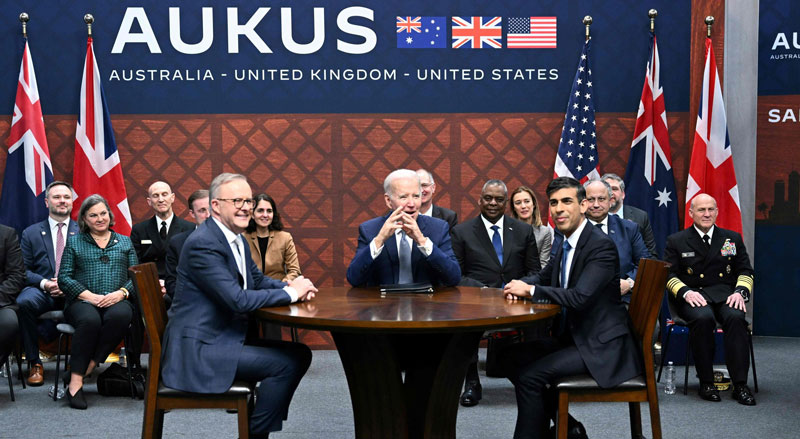In recent news, the United States, the United Kingdom, and Australia have announced a landmark partnership to strengthen their defense against emerging security threats. As part of this agreement, the US will share its nuclear submarine technology with the UK and Australia, a move that has been met with both enthusiasm and criticism. In this article, we will explore the details of this partnership and its potential implications for global security.
The US-UK-Australia Defense Partnership:
The US-UK-Australia defense partnership, also known as AUKUS, was announced on September 15, 2021. The agreement aims to enhance the countries' shared capabilities in areas such as cyber, artificial intelligence, quantum technologies, and undersea warfare. As part of this partnership, the US will share its nuclear submarine technology with the UK and Australia, allowing them to build and maintain their own nuclear-powered submarines.
This move has been seen as a significant shift in the balance of power in the Indo-Pacific region, where China's military presence has been rapidly increasing. The new submarines will enable the UK and Australia to better monitor Chinese naval activities and deter potential threats. However, this move has also raised concerns about the escalation of an arms race in the region and the potential for increased tensions between the US and China.
The Benefits of Nuclear Submarines:
Nuclear-powered submarines are considered the most advanced and capable type of submarine in the world. Unlike conventional diesel-electric submarines, they do not need to surface frequently to recharge their batteries, which makes them much more difficult to detect and track. Nuclear submarines also have a much longer range and can operate underwater for extended periods, allowing them to gather intelligence and carry out covert operations.
The decision to share nuclear submarine technology with the UK and Australia will provide these countries with significant strategic advantages. The UK currently operates four Vanguard-class ballistic missile submarines, which are due to be replaced by the new Dreadnought-class submarines in the 2030s. The new submarines will be equipped with the latest nuclear technology, making them quieter, faster, and more difficult to detect than their predecessors.
Australia currently operates a fleet of six Collins-class diesel-electric submarines, which have been plagued with mechanical problems and have not been able to operate effectively in the deep waters of the South China Sea. The new nuclear-powered submarines will enable Australia to better monitor Chinese naval activities and protect its interests in the region.
The Implications for Global Security:
The US-UK-Australia defense partnership has been met with mixed reactions from the international community. While many countries have expressed support for the partnership, others have raised concerns about the potential for increased tensions and an arms race in the region.
China, in particular, has strongly criticized the move, accusing the US of attempting to undermine its regional security and territorial integrity. The Chinese government has also warned that the new submarines will only escalate tensions and increase the risk of a military conflict.
The US has defended its decision to share nuclear submarine technology with its allies, arguing that it is necessary to maintain peace and stability in the region. The US has also emphasized that the new submarines will not be equipped with nuclear weapons and will only be used for defensive purposes.
Free Speech and Alternative Media are under attack by the Deep State. We need your support to survive.
Please Contribute via GoGetFunding


